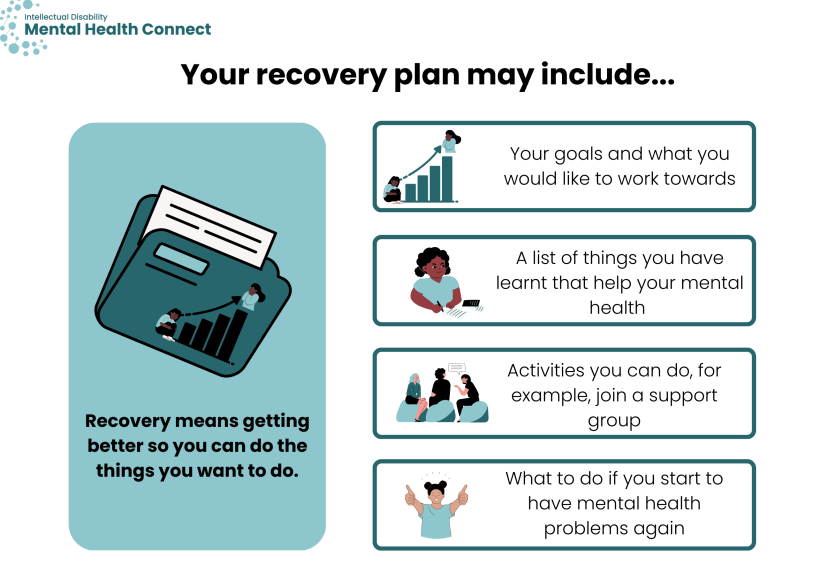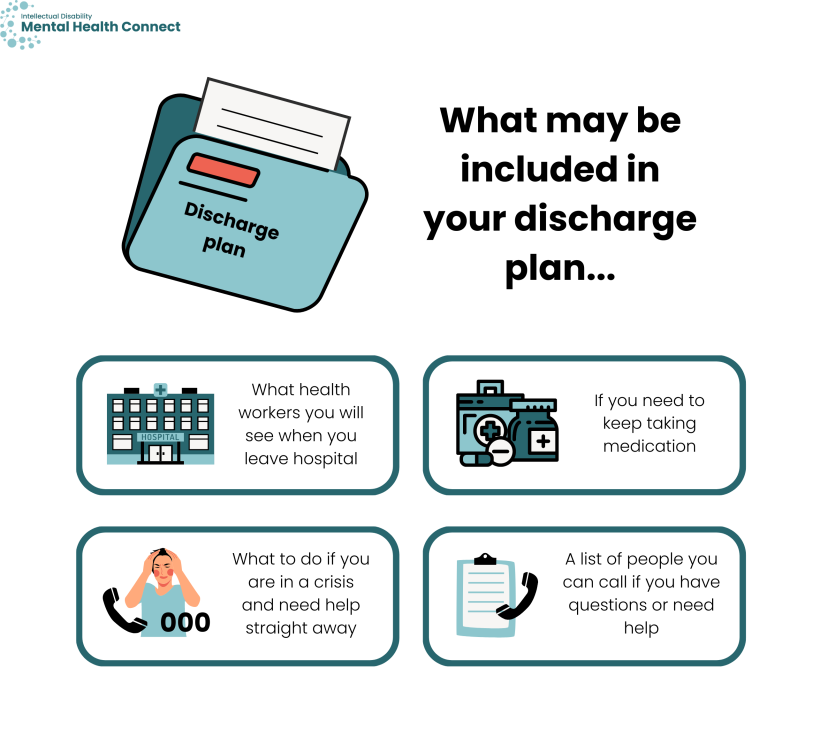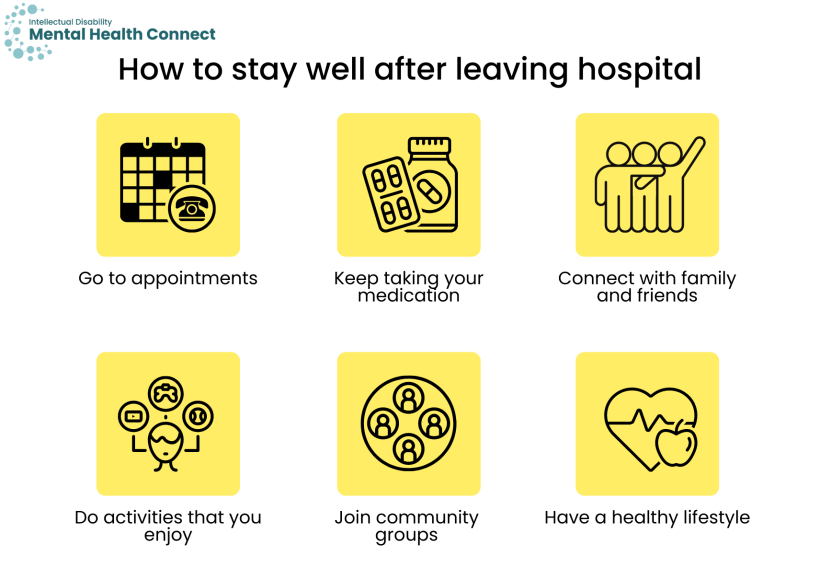Discharge
Jump to a section below
Key points
- There are times when you may move on from a mental health service.
- This may be when you finish with a mental health service or leave hospital. This is called discharge.
- Change can be difficult, but there are ways you and your support network can prepare for moving services.
Discharge usually means when you leave hospital. It can also be when you finish your planned sessions with a mental health worker such as a psychologist.
A psychologist helps you with your mental health by talking with you. Psychologists help you find things you can do to feel better. Psychologists do not give you medication.
When you finish seeing a mental health worker
You may finish seeing a mental health worker when:
- you and your mental health worker have agreed that you no longer need help
- you have used all your sessions on your Mental Health Treatment Plan
- you decide you no longer want to continue with the mental health worker.
You will make a plan of what you can do to continue your recovery. Recovery means getting better so you can do the things you want to do. Your plan may include:
- your goals and what you would like to work towards
- a list of things you have learnt that help your mental health
- activities you can do, for example, join a support group
- what to do if you start to have mental health problems again. A mental health problem is when your feelings start to worry you. It can be when you cannot control your feelings.
You will usually have a follow-up session a few weeks later to see how you are going.

Leaving hospital
To leave hospital is called discharge. You and your mental health workers will plan for your discharge while you are in hospital.
Planning for discharge
Your doctors should start planning what support you will get when you leave hospital. This is called a transfer of care plan or discharge plan.
Your doctors should discuss the plan with you. You can tell them what your wishes are. You can use the My Easy Read Discharge Plan to help you ask questions and make decisions about what will happen when you leave hospital.
Your plan will include:
- what health workers you will see when you leave hospital
- if you need to keep taking medication. Medication is sometimes called medicine or drugs. Medicine can be in a tablet, a pill, a drink, or an injection. Doctors let people know which medicine to take to help make them better.
- a list of people you can call if you have questions or need help
- what to do if you are in a crisis and need help straight away. A crisis is when you are in danger or very upset.

If you think you will need extra support when you leave hospital or will have trouble keeping track of health and disability workers you need to see, you can discuss whether a support worker, case manager, or care co-ordinator might be helpful for you. If you have a National Disability Insurance Scheme (NDIS) plan, discuss this with your NDIS Support Coordinator.
The NDIS website has more information on recovery and who can help you.
Staying well
What happens when you feel well again
When you go home, you may go back to work or do activities you did before. But you may choose to make changes in your life, for example:
- get a new job
- study a new skill
- move to a new home
- start new hobbies.
You can read about services that can support you when you go home in Services for mental health.
How you can stay well
There are lots of ways you can help your recovery and stay well when you go home. It can help to:
- go to follow-up appointments with your GP and mental health workers
- take calls or home visits from mental health workers and other supports
- keep taking your medication
- If you are having side effects or have any questions about your medication, discuss this with your GP or psychiatrist. A psychiatrist is a doctor who helps you with your mental health using talking and medication. A side effect is an unpleasant effect of medication on your body or thinking. A side effect can make you feel unwell.
- connect with family and friends if that helps you. They can assist you if you start to have mental health problems again.
- do activities that you enjoy – see Tips for good mental health for ideas
- join community groups or support groups – see Services for mental health for ideas
- have a healthy lifestyle which can include getting enough sleep, eating well, and doing exercise – see Tips for good mental health for ideas.

What do I do if I start to notice mental health problems again
It is normal for your feelings to change. Sometimes we have feelings that make us feel good. Sometimes we have feelings that make us feel bad. However, you may notice more feelings that make you feel bad. These feelings may last more than a few days. For example, you may feel:
- sad
- down
- worried
- scared
- confused.
Your discharge plan may also have a list of things to look out for that mean you need help for your mental health.
If you start to notice mental health problems again, you can:
- tell someone you trust
- look at your discharge plan, which may tell you what to do
- make an appointment with your GP
- make an appointment with your mental health worker e.g. psychiatrist or psychologist.
If you are in a crisis, see the Emergency help page for what to do. A crisis is when you are in danger or are very upset.
Resources
- You can use the My Easy Read Discharge Plan if you have been in hospital for your mental health.
- The NDIS website has information on recovery and who can help you.